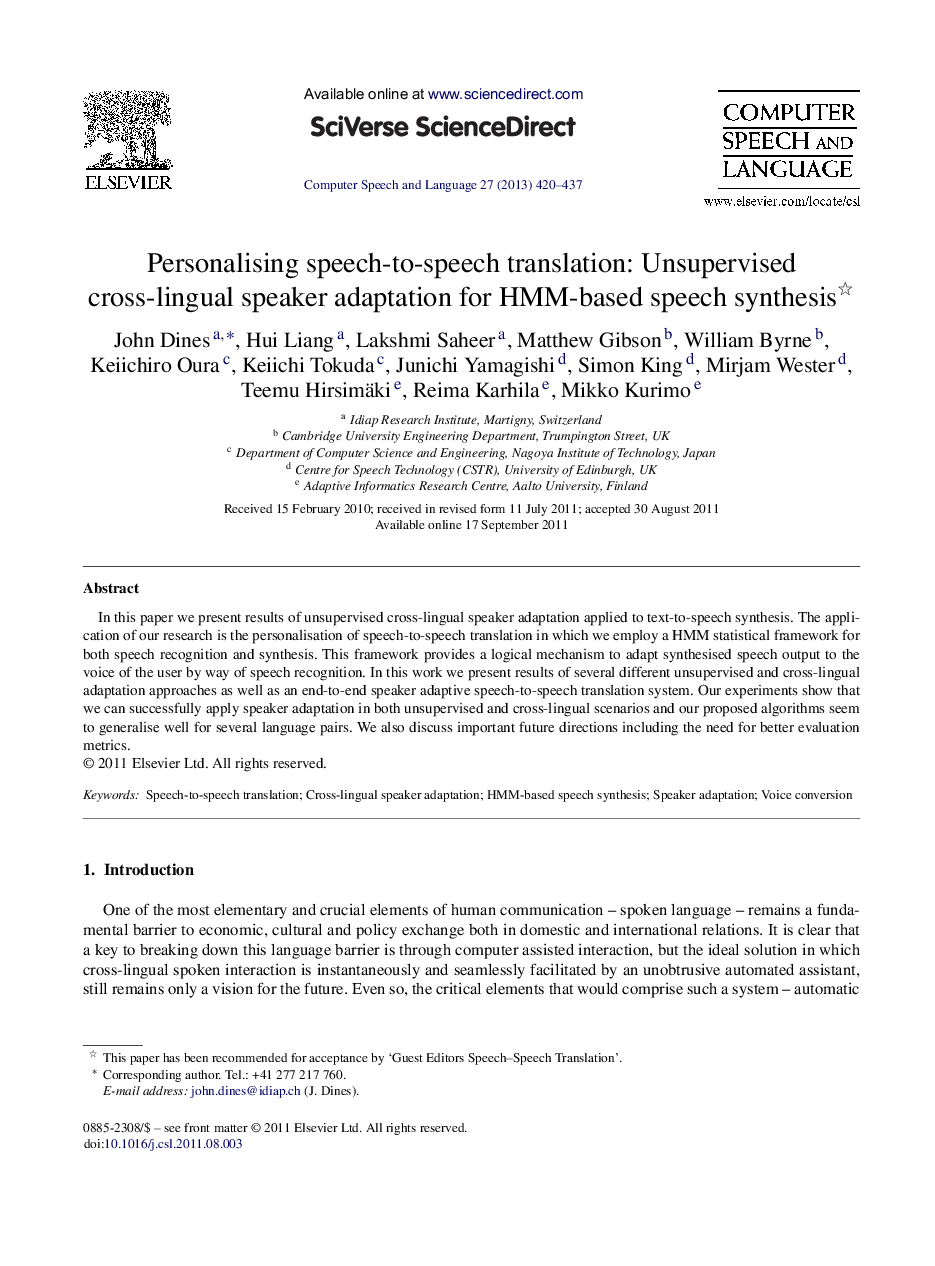| Article ID | Journal | Published Year | Pages | File Type |
|---|---|---|---|---|
| 558413 | Computer Speech & Language | 2013 | 18 Pages |
In this paper we present results of unsupervised cross-lingual speaker adaptation applied to text-to-speech synthesis. The application of our research is the personalisation of speech-to-speech translation in which we employ a HMM statistical framework for both speech recognition and synthesis. This framework provides a logical mechanism to adapt synthesised speech output to the voice of the user by way of speech recognition. In this work we present results of several different unsupervised and cross-lingual adaptation approaches as well as an end-to-end speaker adaptive speech-to-speech translation system. Our experiments show that we can successfully apply speaker adaptation in both unsupervised and cross-lingual scenarios and our proposed algorithms seem to generalise well for several language pairs. We also discuss important future directions including the need for better evaluation metrics.
► We examine different approaches for personalising HMM-based speech-to-speech translation systems using speaker adaptation. ► Two adaptation approaches based on ‘pipeline’ and a novel ‘unified’ framework are presented. ► Using both frameworks, unsupervised adaptation of HMM-based TTS is able to preserve speaker similarity in the presence of recognition errors. ► There is a need to better understand perception of speaker similarity and to develop better evaluation metrics for this task.
